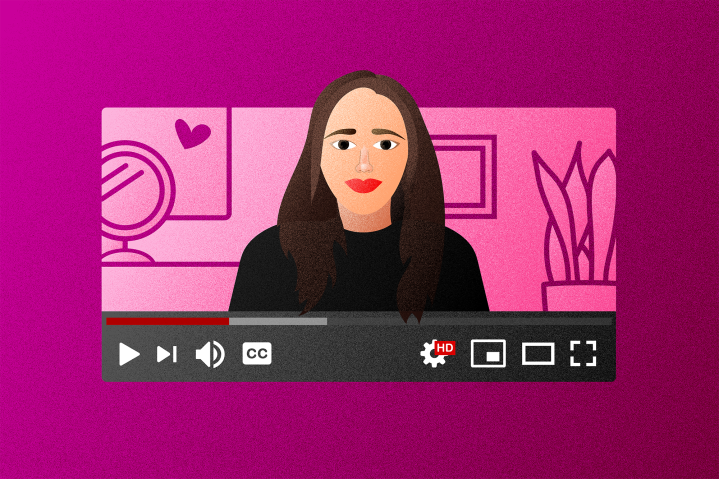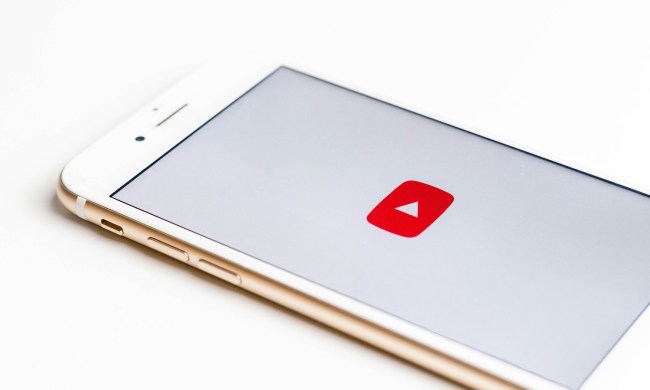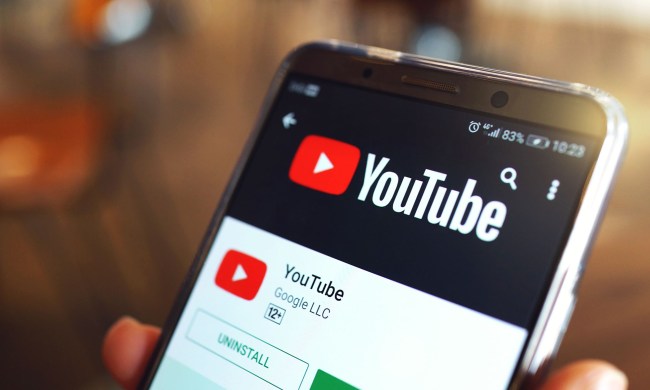
The coronavirus has brought down the airline industry, shuttered many small businesses for good, and crushed once-dominant legacy retail chains. And according to some reports, it’s also dealt a blow to influencers.
Coronavirus-related lockdowns have made it far more difficult for influencers to maintain their perfectly curated feeds and churn out content that touts lavish vacations and exclusive perks, since basically everything influence-worthy is canceled. But critics who expected the creator industry to crash due to inauthenticity or very public (and admittedly bad) missteps have since been proven wrong. The predicted end of influencers isn’t happening. In fact, for many YouTubers, video views are off the charts and subscriber counts are growing by the minute, even in the midst of the pandemic.
But in mid-March, Alexandra Gater, who runs a popular do-it-yourself home decor channel, was nervous. She had several brand partnerships fall through, and travel opportunities canceled indefinitely. Self-isolated in her Toronto apartment, Gater started to think about what her audience would want to see, since she could no longer do in-person interior makeovers — the main type of content she produces.
So she decided to pivot. A little.
Normally she wouldn’t shoot her own videos — she has a videographer — but she thought she would give it a try. Since she can’t leave the house, she started doing virtual makeovers, as well as weekly roundups of tutorials on how to paint a bathroom, find cost-effective furniture, and install shelves. The feedback she got surprised her.
“My viewers have been so accepting of the change in my content,” said Gater in an interview with Digital Trends. “Things that I thought would fall short have performed really well. I realized quite quickly that people just want to be entertained.”
In its first-quarter earnings call last month, Google said YouTube saw a spike in year-over-year viewership. Last year alone, the video platform raked in more than $15 billion from ad revenue, giving nearly half of it back to its creators — a signal of the industry’s future prospects.
“Ultimately, content is king, especially right now, and YouTubers have the unique ability to create on their own,” said Amanda Marzolf, partner at A3 Artists Agency, which represents digital talent.
More eyes than ever
Mae Karwowski, CEO of Obviously, a marketing agency focused on connecting influencers with brand deals, said engagement and viewership is at an all-time high on YouTube. Creators are seeing their subscriber counts grow daily, and views on videos are 20 to 30 percent higher than usual.
“Right now is the best time to get in front of your audience, to create an audience, or grow your audience,” said Karwowski.
Gater agrees. Many of her viewers have been reaching out to tell her, thanks to her channel, they’ve taken on home renovations during self isolation — projects they had no interest in doing before.
“On my hand, it seems silly, here I am painting my bathroom while people are suffering and we are going through a hard time,” said Gater. “I think now more than ever, our homes are so important. The reason I do my channel is because I feel like our homes influence our mental health.”
Nick Stafford who runs the lo-fi hip-hop livestream channel Nickolaas said coronavirus has sparked curiosity in viewers — many of whom are searching for content outside of their usual browsing habits.
“This quarantine has become a catalyst for new users, and YouTube is one place to break away from all this boredom,” he said. “So why not jump into YouTube and try and be a creator? Now has never been a better time to do it.”
https://twitter.com/saucecastillojr/status/1260727139026063362?s=20
Stafford said since coronavirus hit in earnest, his channel gains an average of 150 new subscribers everyday — something he did not expect to happen when he started it back in 2019. Today, he has 36,000 subscribers and gets an average of 18,000 views on his streams. The live chat feature on Stafford’s livestreams has also become a big hit. He said he’s seen people use it to connect with strangers around the world, share music, and to just simply ask how someone’s day was.
“The content being created right now feels even more honest, raw, and relatable,” said Marzolf. “Creators are showing even more of themselves, which will positively affect the relationship with their audience.”
Turning video views into cash
It’s no secret that people can make money from YouTube. Creators build audiences and gain hundreds of thousands of views. Those views are in turn what gives them a steady check in the mail each month.
But successful YouTubers don’t rely entirely on ad revenue, or Adsense — a Google-run program that allows creators/publishers to earn revenue by displaying ads on their content (they’re paid a rate based on CPM (cost per thousand views). Many rely on brand partnership, e-commerce, merchandise sales, and sponsored content to keep their incomes afloat. Coronavirus hasn’t helped there either.
“It’s been hard as a creator because I haven’t stopped working in the last two months,” said Gater. “It’s 12-hour days — the process is much more involved.”
Because so much more content is being produced right now compared to before the pandemic, Adsense is lower than usual, said Gater, resulting in a dip in her income. Many companies have routinely pulled out of sponsored content agreements, too, due to slashed advertising budgets and widespread layoffs.
“Brands were hesitant at first,” said Gater. “It took them a while, and then now it’s like, ‘We need creators to create content!’”
Preplanned brand deals that may have fallen through when COVID-19 first began to spread are steadily being revisited, according to Marzolf.
“Week by week, the amount of branded opportunities seems to be picking up again, although budgets aren’t quite where they were prior to all of this,” she said. “Like all talent, creators are being nimble and exploring options they might have neglected in the past.”
In a survey of 1,000 influencers, Obviously found that 92% of creators were open to trying a form of content creation that was new to them — like hosting a livestream, joining a new platform like TikTok, creating long-form videos on IGTV, or taking part in viral challenges.
Audiences aren’t going anywhere
Creators like Gater who work primarily on YouTube have also leaned into other social media platforms, like Instagram and TikTok, to connect with a broader audience.
“I’ve felt like people are more engaged and relating to my content on Instagram,” said Gater.
And experts don’t anticipate that those new audiences will disappear once shelter-in-home orders are lifted and people aren’t spending nearly as much time on the internet.
“It will level out, but creators can’t abandon the new platforms they’ve leaned into during this time or lessen their output of content,” said Marzolf.
Karwowski believes viewers who found creators during coronavirus are going to stick around afterward — even if they aren’t tuning in every day like they were before — because they provided a necessary element of entertainment.
“People aren’t going to forget you were a sense of distraction and comfort when we were going through a traumatic time,” she said.



